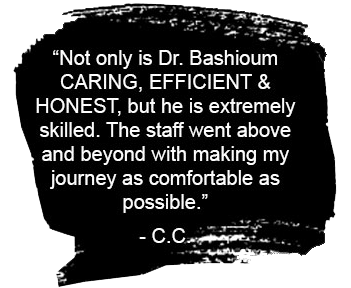Mirror, Mirror. Unrealistic Expectations?
May 24th, 2010
There is an old saying among general surgeons, “If you don’t operate, you will not have complications.”
The same can be said of cosmetic surgical results. On occasion, the results of surgery do not go according to plan. All surgeons have surgical results that are less than optimal. Occasionally some surgery may benefit from a secondary surgery to improve the result.
The causes of less than optimum results are complex. Complications such as unwanted bleeding or infection may occur, compromising recovery and healing. Sometimes patients do not follow after care instructions as carefully as they could, which can lead to problems. Pre-existing medical conditions may also interfere with healing and scarring. The surgical design may just not work out for a particular patient. Generally, the final outcome is a combination due to some or all of these factors.
Revision surgery is often difficult. Changes in anatomy are normal following surgery, so that must be taken into account when planning revised surgery. Feelings of disappointment and possible misgivings by the patient are not to be over-looked. Expectations of perfection may present undue anxiety during recovery, as a result of unrealistic goals. It is necessary to understand the limitations of the procedure. Even the most talented surgeon is unlikely to transform prospective patients into their Hollywood idols. Communication between patient and physician is key to maintaining healthy expectations of having surgery.
Surgical results are rarely perfect. The decision to perform revisional surgery is generally based on the likelihood of improvement, weighed against the risk of making things worse.
Patient Satisfaction
January 26th, 2010
What cosmetic surgeries rated highest in patient satisfaction?
RealSelf.com has published a list of cosmetic procedures ranked on whether patients think having a particular procedure was worth it, based on patients answering their survey question, Was your cosmetic surgery or treatment worth it?
While the ranking of patient satisfaction for various cosmetic surgery procedures is debatable, I find that there are definitely favorites. For my own practice, breast enlargement and liposuction patients seem to be quite pleased with their decision to have cosmetic surgery. The survey came up with different conclusions. Maybe the ranking by RealSelf.com merely represents overall patient satisfaction, without taking into account the quality or training of the physician or technician performing the surgery or treatment.
According to the survey, the top two procedures, tummy tucks and breast reductions are rated at the top. They are almost always done by board certified plastic surgeons. The bottom two procedures, Veloshape and mesotherapy, are almost never done by board certified plastic surgeons. As you move from top to bottom on this list, the percentage of each procedure done by board certified plastic surgeons becomes less and less. For instance, tumescent liposuction, Smart Lipo, liposculpture, liposuction and Vaser lipo, are all done by board certified plastic surgeons, as well as general surgeons, dermatologists, head and neck surgeons (otorhinolaryngologists), family doctors, and gynecologists. In fact you can probably get some type of liposuction done by any medical or surgical subspecialist. Obviously, the medical training in such a wide spectrum of surgical providers can be extremely variable. The survey overlooked this important factor.
My own bias concludes that training is paramount when choosing a physician. Plastic surgery residency is intensely focused on aesthetics of the body and face and the sculptural aspects of surgery. In addition, the medical students who are most often drawn to a plastic surgery residency have both an aptitude and intense interest in the artistic aspects of surgery. Therefore, I believe that a key factor in patient satisfaction is to understand the qualifications of the person doing your surgery or treatment. However, as with all physicians, plastic surgeons do have dissatisfied patients, a fact of life in the practice of medicine in general. Choose wisely.
